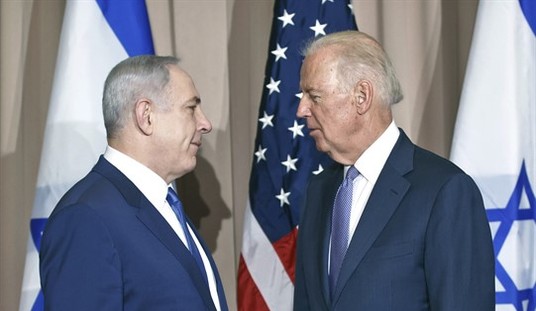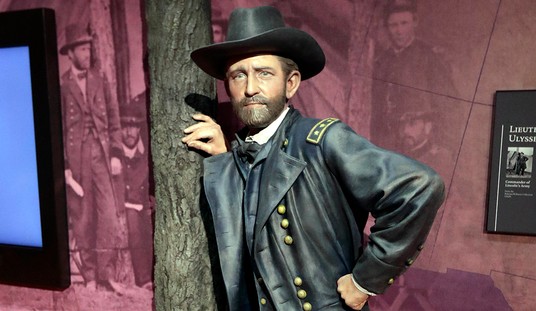Matt Breunig at Gawker argues that riots save money and he puts a dollar figure on it. He writes: “one need look no further than famous economist and Nobel laureate Gary Becker to see how this is true. According to Becker, punishing bad behavior increases the costs of engaging in such behavior and thereby reduces the amount of it.” The bad behavior rioting curbs is the tendency of white police officers to be “needlessly aggressive toward blacks”.
It’s estimated that white officers kill black suspects 96 times a year. Cost-benefit analyses conducted by safety regulators peg the value of a human life at $9.2 million. This means the economic cost of white cops killing blacks is around $883 million per year. If the jolt caused by Ferguson’s rioting can chill police authorities and cause adjustments that save just 3 black lives per year, that’s an economic savings of $27.6 million. It’s hard to tell now how much damage rioting in Ferguson has caused, but I’d doubt it’s anywhere near that figure.
It’s interesting to compare this calculation with Jonathan Gruber’s 1997 paper for the National Bureau of Statistics titled “Abortion Legalization and Child Living Circumstances: Who is the ‘Marginal Child'”, which argues that “legalization of abortion in five states around 1970, by followed by legalization nationwide due to the 1973 Roe vs Wade decision … saved the government over $14 billion in welfare expenditures through 1994.”
Even better, John Donohue, of Yale Law School, and Steven Levitt, of the University of Chicago, found that ‘abortion cuts crime’.
The authors argue that states that had abortion legalized earlier should have the earliest reductions in crime. Donohue and Levitt’s study indicates that this indeed has happened: Alaska, California, Hawaii, New York, Oregon and Washington experienced steeper drops in crime, and had legalized abortion before Roe v. Wade. Further, states with a high abortion rate have experienced a greater reduction in crime, when corrected for factors like average income. Finally, studies in Canada and Australia claim to have established a correlation between legalized abortion and overall crime reduction.
If abortion cuts crime and saves society money it is mostly African-Americans who get the treatment. “From 1973 through 2011, nearly 53 million legal abortions occurred” disproportionately among non-Hispanic black women,who account for 30% of abortions while constituting 12.4% of the population.
The 1972 Rockefeller Commission on Population and the American Future is one of the better known early versions of this claim, although it was not the first. The Commission cited research stating that the children of women denied an abortion “turned out to have been registered more often with psychiatric services, engaged in more antisocial and criminal behavior, and have been more dependent on public assistance” … and were more likely to become delinquents and engaged in crime. Supreme Court Justice Blackmun’s opinion in Roe v. Wade also referenced the social and private problems “of bringing a child into a family already unable, psychologically and otherwise, to care for it.
So what’s the value in human life paid for this crime prevention? Well if infants “aren’t really human” the moral cost of terminating a fetus is zero. It’s a net benefit to ditch them. But if the reader feels “an abyss staring back at him” at this point, there are ample grounds for misgiving. With a cost-benefit number of human life in hand, the issues addressed by Action T4 are not far away.
The T4 programme stemmed from the Nazi Party’s policy of “racial hygiene” … The ideas of racial hygiene and social Darwinism were present in many western countries in the early 20th century. Emerging information about genetic diseases and conditions led people to think they could prevent their being passed on to future generations. The eugenics movement had many followers among educated people, being particularly strong in the United States. The idea of sterilising those carrying hereditary defects or exhibiting what was thought to be hereditary antisocial behaviour was widely accepted. The United States, Sweden, Switzerland and other countries also passed laws authorizing sterilization of certain classes of people. For example, between 1935 and 1975, Sweden sterilised 63,000 people on eugenic grounds.
The attitudes of the Nazis towards children was remarkably modern. Human offspring should not “be left to the chance encounter of a drunken moment…. If, nevertheless, it turns out that the newborn baby is a weak and misbegotten child, the medical council, which decides on citizenship for the community, should prepare a gentle death for it, say, using a little dose of morphine.”
We’ve forgotten this history so thoroughly we’re repeating it already. In August of this year, Britain did something quite progressive. “Charlotte Fitzmaurice Wise legally authorized the euthanasia of her daughter, Nancy, after she successfully petitioned the U.K. High Court to allow her to end her daughter’s pain and misery.”
Nancy, who was born blind and diagnosed with hydrocephalus, meningitis and septicaemia, suffered constant pain and was never able to talk, walk, eat or drink on her own. Her condition required 24-hour hospital care, where she could only be fed, hydrated and medicated through tubes.
The burden of Nancy’s illness caused Charlotte to quit her nursing job so she could be devoted full time to supporting her daughter. But when Nancy’s agony became too much, and pain killing measures like morphine stopped numbing the pain, Charlotte issued a plea to the high court. Justice Eleanor King empathized with the mother and granted her request to end her daughter’s life because she ruled that Nancy had no quality of life.
Justice King’s decision marks the first time that the British court system has allowed for a child, who was not on life support or diagnosed with a fatal illness, to be euthanized through the medical system. Fourteen days after the court gave its approval, Nancy died after Charlotte ordered doctors at London’s Great Ormand Street Hospital to pull Nancy’s tube and withhold her nutritional fluids.
Once could argue that the Nazi’s “little dose of morphine” would have done a better job. But the harder question to answer is why the Nazis were wrong. How do we refute their logic, when after all modern British judges and enlightened academics are adopting such similar modes of thought today?
One answer is that we choose to be illogical. Society is often consciously irrational about certain things. These unquantifiable, non-negotiable subjects are commonly called taboos. “A taboo is a vehement prohibition of an action based on the belief that such behavior is either too sacred or too accursed for ordinary individuals to undertake, under threat of supernatural punishment. Such prohibitions are present in virtually all societies.” You cannot put a price on a taboo and in that sense they resemble the sociological equivalent of infinities.
Perhaps it is even more accurate to compare taboos to social postulates or axioms. An axiom is taken to be true without proof; an assumption on which a whole subsequent edifice is built. “The whole of Euclidean geometry, for example, is based on five postulates known as Euclid’s postulates.” The are not proven to be true. They are simply given.
The idea that “human life is sacred” is important because it functions as a foundation stone. It is the axiom on which rests the whole of our civilization. One can demonstrate, as Mssrs Gruber, Donohue or Levitt have done, that it is “cost-beneficial” to abort minority babies. But you accept that proposition at the price of prying out the foundation stone of Western civilization. And for many that’s simply too much to pay.
People often violate taboos in circumstances when they cannot be observed. The injunction against taking human life, for example, is illogically violated when necessity requires it, as for example, in wartime. But we restore the taboo just as soon as we are able. We pretend we didn’t do it and try to go back to normal. Some may call this hypocrisy, but if so it is fiction made necessary by the requirement to keep our way of life going.
Let us return to the question: is it cost-beneficial to burn buildings and kill innocent bystanders to send a message to the White Police Establishment? Isn’t it rational to promote abortion to save on welfare and cut crime? Is it cheaper to promote death panels in health care systems rather than pay for the treatment of the elderly? The answer to the previous questions may all be “yes” and yet the price of assent may be more than we can ever afford.
[jwplayer mediaid=”40618″]
Recently purchased by readers:
Eleven Minutes, A Novel by Paul Coelho
The Diabetes Solution, How to Control Type 2 Diabetes and Reverse Prediabetes Using Simple Diet and Lifestyle Changes–with 100 recipes
Why We Lost, A General’s Inside Account of the Iraq and Afghanistan Wars
Plochman’s Kosciusko Mustard, Spicy Brown, 9-Ounce Spoonable Barrels (Pack of 12)
Crane Adorable Ultrasonic Cool Mist Humidifier, with 2.1 Gallon Output per Day Dragon figure
Casio Men’s WS210H-1AV Itoya Art Profolio Storage/Display Book 4 inch x 6 inch 24
Recommended:
Above it All, [Kindle Edition], a helicopter pilot in Vietnam
13 Hours, The Inside Account of What Really Happened In Benghazi
Tower of the Sun, Stories From the Middle East and North Africa [Kindle Edition] by Michael Totten
Keurig K75 Single-Cup Home-Brewing System with Water Filter Kit, Platinum
The Walking Dead, 5 Seasons 2014
Did you know that you can purchase some of these books and pamphlets by Richard Fernandez and share them with you friends? They will receive a link in their email and it will automatically give them access to a Kindle reader on their smartphone, computer or even as a web-readable document.
The War of the Words for $3.99, Understanding the crisis of the early 21st century in terms of information corruption in the financial, security and political spheres
Rebranding Christianity for $3.99, or why the truth shall make you free
The Three Conjectures at Amazon Kindle for $1.99, reflections on terrorism and the nuclear age
Storming the Castle at Amazon Kindle for $3.99, why government should get small
No Way In at Amazon Kindle $8.95, print $9.99. Fiction. A flight into peril, flashbacks to underground action.
Storm Over the South China Sea $0.99, how China is restarting history in the Pacific
Tip Jar or Subscribe or Unsubscribe to the Belmont Club









Join the conversation as a VIP Member